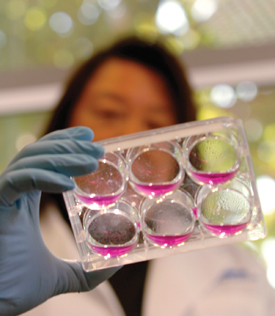Bill is not correct way to deal with stem-cell research question

I compliment the Minister of State, Jimmy Devins TD on the comprehensive treatment he gave to the topic. However, ringing in his ears and in the ears of all of us are the demands and very strong suggestions from a number of bodies for regulation to be introduced, and for legislation in this crucial area. As recently as this year, the Irish Council for Bioethics made such a demand. Regulation is the way in which we should approach this matter.
I am sure Senator Mullen has a continuing interest in this topic. However, it is probably true that this debate was triggered by the decision of UCC some weeks ago. Whatever one might say about the particular call made by the ethics committee in UCC and, ultimately, by the governing body of the university, at least they wrestled with this question and came up with actual decisions. Some people may believe it to be a good thing to be uncertain, as it were, about where they stand. This may not be something to criticise. From an intellectual point of view, I understand and appreciate someone who takes that viewpoint but ultimately it is the case that decisions must be made.
Senator Maria Corrigan referred to President Bush. I remind the House that President Bush vetoed a Bill passed in the Senate in respect of the promotion and funding of stem cell research. President-elect Obama proposes to reverse that veto. These are decisions made in a much more complex and wealthier country which, no matter what way one looks at it, is likely to be at the forefront of these issues more quickly than we ever will be. Americans have faced up to the fact that they must make decisions.
Again and again, with regard to complex moral questions and issues, we have allowed decisions to be made elsewhere and have permitted the effects of decisions made in other countries to wash into this country. We have taken the benefit, or at least potentially stand to take the benefit, of decisions made in respect of research and advances made in other countries. These include medical advances in respect of which some of us may have difficulties or questions. We do not say that we will not permit Irish citizens to benefit from those medical advances nor do we say that we will seek to ensure that Irish citizens cannot gain such benefit. If we do not legislate in respect of these matters there will continue to be, as is the current position, a free for all. At present there is no legal impediment on the importation to this country of embryonic stem cell lines or their use here by scientists. That is extraordinary. We must all agree it is not good to be without regulation.
By all means we can have this debate and it is good that we have it. The Minister of State gave a strong indication that there would be legislation and I know this is one of the issues the Attorney General is considering, as is the Law Reform Commission. I fervently hope that we will have legislation to regulate these issues, sooner rather than later.
Senator David Norris queried what he described as the appropriation of the language of human rights by some advocates of the Bill. When this debate was signalled last week, Senator Mullen or another colleague expressed the hope that people on either side of the argument would not be demonised. While I subscribe to that view and share the Senator’s hope, it pains me to hear colleagues criticising professional scientists for cynically generating false hope among people who are ill and vulnerable in order to attract Government funding for their projects and activities. This is an example of demonising people which does not have a place in this debate. Whether one wishes to refer to an embryologist or research scientists, in a debate such as this one can pick one’s scientist because scientists on different sides of the argument make conflicting claims and arguments. This reinforces the point that the decision on this issue ultimately will be one for politicians.
From what I have understood from reading about this issue, if one were to use a crude measure and take a poll - legislators have many things to do and must try to get a sense of where the balance lies - one would find that the weight of scientific opinion is in favour of at least not banning embryonic stem cell research. The trigger reaction of prohibiting this type of research and imposing fines is not the correct approach.
On the issue of adult stem cell research versus embryonic stem cell research, I fundamentally disagree with the view expressed by Senator Mullen, in making a point in respect of resources, that we must choose between these forms of research because we cannot do both. This is an unsustainable position. Why would we have to make a choice or set one form of research off against another? Both forms of research have been demonstrated to be valuable.
Senator John Hanafin emphasised that there has not been a single clinical trial in respect of embryonic stem cell research. In all areas of scientific research there are no guarantees of success. No one engaging in research in any field will ever state that success is guaranteed as there is always in scientific research an element of contingency and doubt. If, next month or next year, a breakthrough is achieved arising from embryonic stem cell research, will my colleagues change their minds?
More :: View the Stem Cell Research (Protection of Human Embryos) Bill 2008 by clicking here
More :: Read the full Seanad debate by clicking here

Leave a Comment